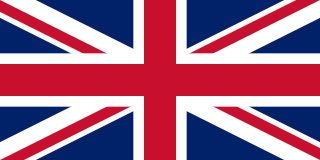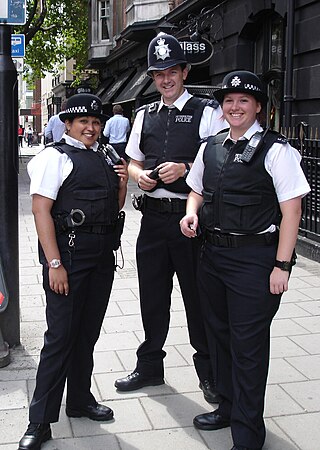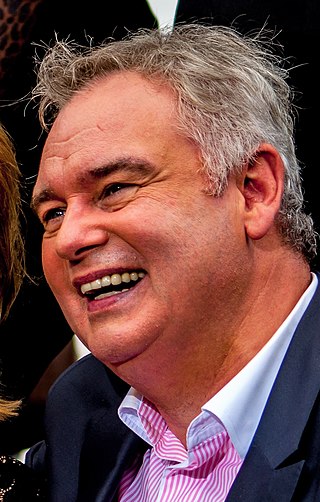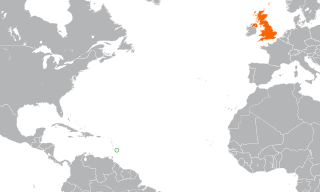Related Research Articles

Belfast is the capital city and principal port of Northern Ireland, standing on the banks of the River Lagan and connected to the open sea through Belfast Lough and the North Channel. It is the second-largest city on the island of Ireland, with an estimated population of 348,005 in 2022, and a metropolitan area population of 671,559.

Northern Ireland is a part of the United Kingdom in the north-east of the island of Ireland that is variously described as a country, province or region. Northern Ireland shares an open border to the south and west with the Republic of Ireland. At the 2021 census, its population was 1,903,175, making up around 3% of the UK's population and 27% of the population on the island of Ireland. The Northern Ireland Assembly, established by the Northern Ireland Act 1998, holds responsibility for a range of devolved policy matters, while other areas are reserved for the UK Government. The government of Northern Ireland cooperates with the government of Ireland in several areas under the terms of the Belfast Agreement. The Republic of Ireland also has a consultative role on non-devolved governmental matters through the British–Irish Governmental Conference (BIIG).

The United Kingdom of Great Britain and Northern Ireland, commonly known as the United Kingdom (UK) or Britain, is a country in Northwestern Europe, off the coast of the continental mainland. It comprises England, Scotland, Wales, and Northern Ireland. The UK includes the island of Great Britain, the north-eastern part of the island of Ireland, and most of the smaller islands within the British Isles, making up a total area of 94,354 square miles (244,376 km2). Northern Ireland shares a land border with the Republic of Ireland; otherwise, the United Kingdom is surrounded by the Atlantic Ocean, the North Sea, the English Channel, the Celtic Sea, and the Irish Sea. The United Kingdom had an estimated population of over 68.2 million people in 2023. The capital and largest city of both England and the United Kingdom is London, whose wider metropolitan area is the largest in Western Europe, with a population of 14.9 million. The cities of Edinburgh, Cardiff, and Belfast are the national capitals of Scotland, Wales, and Northern Ireland, respectively.

Suzy Eddie Izzard, known professionally as Eddie Izzard, is a British stand-up comedian, actor and activist. Her comedic style takes the form of what appears to the audience as rambling whimsical monologues and self-referential pantomime.

The Home Office (HO), also known as the Home Department, is a ministerial department of the Government of the United Kingdom. It is responsible for immigration, security, and law and order. As such, it is responsible for policing in England and Wales, fire and rescue services in England, Border Force, visas and immigration, and the Security Service (MI5). It is also in charge of government policy on security-related issues such as drugs, counterterrorism, and immigration. It was formerly responsible for His Majesty's Prison Service and the National Probation Service, but these have been transferred to the Ministry of Justice.

Law enforcement in the United Kingdom is organised separately in each of the legal systems of the United Kingdom: England and Wales, Scotland, and Northern Ireland. Most law enforcement duties are carried out by those who hold the office of police constable of a territorial police force.

The Department for Culture, Media and Sport (DCMS) is a ministerial department of the Government of the United Kingdom. It holds the responsibility for culture and sport in England, and some aspects of the media throughout the UK, such as broadcasting. Its main offices are at 100 Parliament Street, occupying part of the building known as Government Offices Great George Street.

The Irish Republican Socialist Party or IRSP is a minor communist, Marxist–Leninist and Irish republican party in Ireland. It is often referred to as the "political wing" of the Irish National Liberation Army (INLA) paramilitary group. The party's youth wing is the Republican Socialist Youth Movement (RSYM). It was founded by former members of 'Official' Sinn Féin in 1974 during the Troubles, but claims the legacy of the Irish Socialist Republican Party of 1896–1904. The party opposes the Good Friday Agreement and the European Union.

United Ireland, also referred to as Irish reunification or a New Ireland, is the proposition that all of the island of Ireland should be a single sovereign state. At present, the island is divided politically: the sovereign state of Ireland has jurisdiction over the majority of Ireland, while Northern Ireland, which lies entirely within the Irish province of Ulster, is part of the United Kingdom. Achieving a united Ireland is a central tenet of Irish nationalism and Republicanism, particularly of both mainstream and dissident republican political and paramilitary organisations. Unionists support Northern Ireland remaining part of the United Kingdom and oppose Irish unification.
Integrated education in Northern Ireland refers to the bringing together of children, parents and teachers from both Roman Catholic and Protestant traditions in childhood education: the aim being to provide a balanced education, while allowing the opportunity to understand and respect all cultural and religious backgrounds.

Eamonn Holmes is a Northern Irish broadcaster and journalist. He co-presented the breakfast television show GMTV (1993–2005) for ITV, before presenting Sunrise (2005–2016) for Sky News. Holmes co-presented ITV's This Morning (2006–2021) with his wife Ruth Langsford on Fridays and during the school holidays. In January 2022, he joined GB News to present its breakfast programme alongside Isabel Webster. He has also presented How the Other Half Lives (2015–2019) and It's Not Me, It's You (2016) for Channel 5.
In the United Kingdom and the British Islands, any household watching or recording television transmissions at the same time they are being broadcast is required by law to hold a television licence. This applies regardless of transmission method, including terrestrial, satellite, cable, or for BBC iPlayer internet streaming. The television licence is the instrument used to raise revenue to fund the BBC and S4C.

Michelle O'Neill is an Irish politician who has been the First Minister of Northern Ireland since February 2024 and Vice President of Sinn Féin since 2018. She has also been the MLA for Mid Ulster in the Northern Ireland Assembly since 2007. O'Neill was previously deputy First Minister of Northern Ireland from 2020 to 2022. O'Neill served on the Dungannon and South Tyrone Borough Council from 2005 to 2011.

Lesbian, gay, bisexual, and transgender (LGBT) people in Northern Ireland enjoy most of the same rights as non-LGBT people. However, the advancement of LGBT rights has traditionally been slower than the rest of the United Kingdom, with the region having lagged behind England, Scotland, and Wales. Northern Ireland was the last part of the United Kingdom where same-sex sexual activity was decriminalised, the last to implement a blood donation “monogamous no waiting period” policy system for men who have sex with men and, after intervention by the Parliament of the United Kingdom, the last to allow same-sex marriage. Compared to the neighbouring Republic of Ireland, all major LGBT rights milestones had been reached earlier in Northern Ireland, with the exception of same-sex marriage. Homosexuality was decriminalised in Northern Ireland a decade earlier and civil partnerships were introduced six years earlier.
The British Broadcasting Corporation (BBC) is a British public service broadcaster headquartered at Broadcasting House in London, England. Originally established in 1922 as the British Broadcasting Company, it evolved into its current state with its current name on New Year's Day 1927. The oldest and largest local and global broadcaster by stature and by number of employees, the BBC employs over 21,000 staff in total, of whom approximately 17,200 are in public-sector broadcasting.

The historical ties between the governments of Barbados and the United Kingdom of Great Britain and Northern Ireland (UK) are long and complex, including settlement, post-colonialism and modern bilateral relations. The two countries are related through common history spanning 339 years (1627–1966). Since the Barbadian date of political independence, these nations continue to share ties through the Commonwealth of Nations. Until becoming a Commonwealth republic in 2021, Barbados also shared the same Head of State, with Queen Elizabeth II as their Monarch.

The United Kingdom's post-Brexit relationship with the European Union and its members is governed by the Brexit withdrawal agreement and the EU–UK Trade and Cooperation Agreement. The latter was negotiated in 2020 and has applied since January 2021.

The Identity and Language Act 2022 is an act of Parliament in the United Kingdom providing "official recognition of the status of the Irish language" in Northern Ireland, with Ulster Scots being an officially recognised minority language.

The following is a timeline of the COVID-19 pandemic in the United Kingdom from January 2020 to June 2020.
References
- ↑ "Older people's commissioner named as Eddie Lynch, who lobbies for elderly". Belfast Telegraph. Mediahuis. 11 March 2016. Retrieved 26 October 2024.
- ↑ Connolly, Marie-Louise (12 October 2022). "NI health: Some nursing home medical bills challenged in court". BBC News. British Broadcasting Corporation. Archived from the original on 4 November 2022. Retrieved 26 October 2024.
- ↑ "Care home resident eviction 'traumatic' - son". BBC News. British Broadcasting Corporation. 7 March 2024. Archived from the original on 7 March 2024. Retrieved 26 October 2024.
- ↑ "Covid-19: Older people commissioner urges more care home staff to get jab". 5 August 2021. Archived from the original on 5 August 2021.
- ↑ Preston, Allan (24 April 2023). "Older victims of crime in Northern Ireland lack support, commissioner says". The Irish News. The Irish News. Archived from the original on 1 May 2023. Retrieved 26 October 2024.